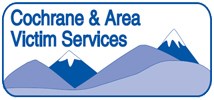On a tragic summer morning in 2015, Kari Murphy was notified of the death of her son, Lamont Murphy, who was hit by a train in Cochrane.
On a tragic summer morning in 2015, Kari Murphy was notified of the death of her son, Lamont Murphy, who was hit by a train in Cochrane.
In some municipalities, the only person to arrive to notify the next of kin after such an incident would be an RCMP officer or two who would deliver the news before heading to their next call.
However, three individuals greeted Murphy that morning, only one of which was an RCMP officer. The other two were members of Cochrane and Area Victim Services (CAVS) - an organization dedicated to offering emotional support to victims of crime and traumatic events.
“That morning was a blur and I didn't absorb everything that they told me but they did tell me the next steps, ” she said. “I would never in my wildest dreams - like as a parent - you don't think of calling a coroner or funeral homes or any of that stuff and they left me with that important information. ”
Murphy is not alone in her experience.
The organization has seen a steady climb in service requests in recent years. That's why when CAVS requested an additional $10,000 in funding from the town - for a grand total of $60, 000 - it was granted.
In 2015, CAVS responded to 505 cases and in 2017 that number jumped to 760 new case files. On top of that, nearly 200 cases from 2016 were carried over.
The victim service members who visited Murphy the morning she was notified of her son's death were not just there to give logistical support - they were there to provide Murphy emotional support and assist with such details as notifying family members.
“There was one moment where I was fighting to - it's crazy what you remember - to do up my hoodie and I couldn't figure out the zipper. And she just grabbed my hands and looked at me and said ‘do you want some help,' ” Murphy said. “There was no judgement and they listened to me babble on about nonsensical things and go into shock. In the darkness there was just a little tiny (light). ”
Murphy recalls one of the victim support workers even holding her hand.
“I wasn't alone in that moment and I could have been if they weren't available, ” Murphy said. “If they wouldn't have come, the RCMP would have come and told us and then left and I would have been left by myself. ”
“I honestly couldn't imagine what that morning would have been like without them, ” she said.
The organization said the $10,000 increase from last year is fundamental to maintain the current services and programs provided as well, to keep up with the town's growth.
Victim services has only four full time staff members, one of which was recently bumped up from half-time status to help shoulder the increase in demand. Each of the staff takes on between 75 to more than 100 cases.
Kathryn McMackin, a CAVS program co-ordinator, said the funding will go toward maintaining salaries and resources to meet needs of clients rather than increasing staff since space at their 12-by-12 foot office is limited.
Of the cases CAVS addresses, 40 to 50 per cent are domestic violence.
McMackin said the carry-over files - which typically tend to be domestic violence cases - are especially resource depleting because they are typically more in-depth.
“These files are more labour intensive and more demanding, because you have somebody that needs support, needs help going through a safety plan, needs that protection order in place, ” McMackin said.
CAVS fills a gap in community service by helping to reduce the number of phone calls and requests for information that would fall in the laps of the RCMP.
“The RCMP is not there to give community referrals, not there to provide court preparation. They don't have time or the resources to do these things either, ” said Lauren Delahunt, another program co-ordinator with CAVS. “It makes sure people aren't over burdening the RCMP with services that they wouldn't be able to provide. ”
If the organization had not been given its full request, CAVS would have had to decide which essential programs it could scale back on.
“If that had happened it would have been something that we would have to sat down as an organization and as a team and figured out what we can change and what we can scale back on, ” said Delahunt. “Fortunately that wasn't the case. ”
